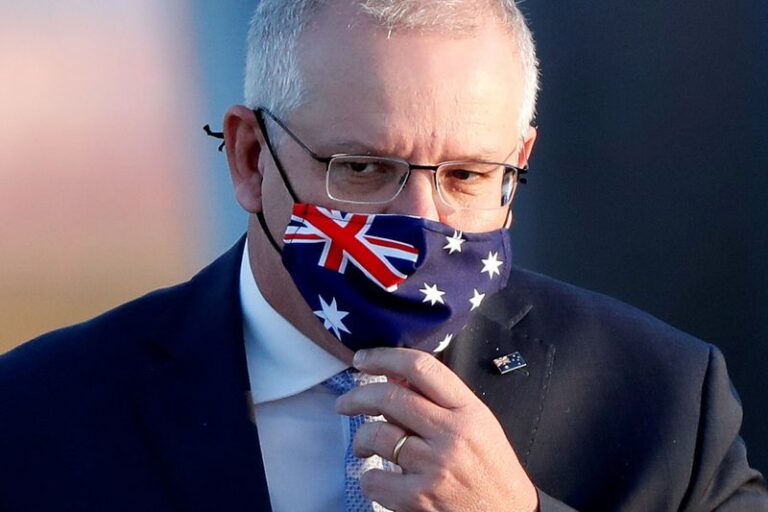
(Reuters) — Australian Prime Minister Scott Morrison on Tuesday said it was still not safe to allow residents fully-vaccinated for COVID-19 to travel overseas, as industries hit hard by the pandemic press for a faster reopening of international borders.
“I understand that everyone is keen to get back to a time that we once knew. But the reality is we are living this year in a pandemic that is worse than last year,” Morrison told reporters.
Morrison said any plans to relax border rules for vaccinated travellers could be implemented “only when it is safe to do so”.
Australia plans to reopen borders to the rest of the world from the middle of 2022 even as the federal budget unveiled last week hopes to fully vaccinate its near 26 million population by the end of this year.
Airlines, tourism operators and universities – reeling from the impact of border bans – have been urging the federal government to fast track the opening of borders.
“We can’t keep (COVID-19) out forever … It will make us sick but won’t put us into hospital. Some people may die but it will be way smaller than the flu,” Virgin Australia boss Jayne Hrdlicka was quoted as saying in Australian media on Tuesday.
Morrison described Hrdlicka’s comments as “somewhat insensitive”.
Authorities in New South Wales, Australia’s most populous state, said at least 80% of its adult population has to be fully vaccinated before considering quarantine-free entry.
Australia closed its international borders in March 2020, mostly to non-citizens and permanent residents, helping keep its COVID-19 numbers relatively low at just under 30,000 cases and 910 deaths.
Though the national immunisation drive missed its initial dosage targets, officials have ramped up the vaccination programme administering 1 million doses in the last 17 days.
So far, more than 3.1 million total vaccine shots have been administered, far short of the 4 million pledged by March-end.






